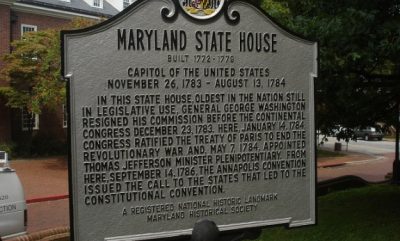Employment and Wages

Administration Takes Step Toward More Entrepreneur-Friendly Immigration Policy
BY TEJAS SHAH*. While the U.S. economy continues to recover at a sluggish pace, the administration continues to emphasize immigration reform’s critical role in promoting innovation and entrepreneurship in the U.S. This week, Cecilia Munoz, the Domestic Policy Council Director at the White House, spoke at a forum hosted by The Hamilton Project of the Brookings Institution about the administration’s commitment to immigration reform and easing pathways for foreign investors in the United States. Sadly, however, talented and dynamic foreign entrepreneurs seeking authorization to direct, operate, manage, or work for their investment vehicles often face tedious barriers. Easing these barriers would benefit our economy and enhance our ability to out-compete other countries in the modern global economy. After all, with out foreign entrepreneurs, we wouldn’t have such U.S. companies as Yahoo, Google, and Intel. Read More

Government Agencies and E-Verify: Erroneous Results and Misuse Cost Workers Their Jobs
Making E-Verify mandatory—even for government agencies and contractors—could threaten the jobs of U.S. citizens because there are errors in the system and because employers misuse it. E-Verify is inaccurate. According to an evaluation by Westat commissioned by the Department of Homeland Security, approximately 0.8 percent of work-authorized U.S. citizens and legal immigrants received an erroneous “tentative nonconfirmation” from E-Verify. Approximately 0.3 percent of those workers were able to successfully contest their findings and keep their jobs. The remaining 0.5 percent were not able to correct their records and received an erroneous “final nonconfirmation.” Read More

New Data Highlights Immigrant Integration and Economic Contributions
A recent analysis of data from the Census Bureau highlights the degree to which immigrants integrate into U.S. society and contribute to the U.S. economy. In its latest statistical profile of the foreign-born population, the Pew Hispanic Center presents statistics which illustrate that most immigrants have been here for more than a decade, more become homeowners the longer they are here, and growing numbers are becoming U.S. citizens. Moreover, the data show the degree to which immigrants fuel labor-force growth and fill valuable roles in the economy as workers in both high-skilled and less-skilled occupations. Read More

Retiring Baby Boom Generation Will Rely on Immigrant, Hispanic Workforce
The U.S. population is rapidly growing older, which is having a dramatic impact on the U.S. labor force. The far-reaching effects of this demographic transformation are very much apparent in the projections released in January by the Bureau of Labor Statistics (BLS). As explained by Rakesh Kochhar of the Pew Hispanic Center, the BLS numbers indicate that “the aging of the non-Hispanic white population is expected to reduce their numbers in the labor force.” At the same time, “the Hispanic population is growing rapidly due to births and immigration.” For those reasons, says Kochhar, the BLS projections indicate that Latinos “will account for three-quarters of the growth in the nation’s labor force from 2010 to 2020.” Read More

Report by Maryland State Panel Details Positive Approach to Immigration
A new report from the Commission to Study the Impact of Immigrants in Maryland concludes that immigrants bring a plethora of economic, social, and cultural contributions to the state of Maryland. The commission, which was created by the Maryland General Assembly, also warns against attempts to deal with unauthorized immigration through enforcement-only policies that needlessly sow fear and distrust in immigrant communities. Rather, the commission admonishes, “Maryland must remain welcoming to immigrants, and the state and its local jurisdictions should further strengthen its efforts to integrate immigrants into the economy and the community.” Read More

New Report Finds that Immigration Creates U.S. Jobs
Immigration creates jobs for native-born Americans. That is the fundamental finding of a new study from the American Enterprise Institute and the Partnership For A New American Economy, entitled Immigration and American Jobs. The study—authored by Madeline Zavodny, a professor of economics at Agnes Scott College—reinforces the findings of numerous other studies which have demonstrated that there is no correlation between immigration and unemployment. Specifically, Zavodny analyzes Census data with the aim of answering one pivotal question: “In states with more immigrants, are US natives more or less likely to have a job?” Zavodny focuses on two groups in particular: immigrants with advanced degrees, and immigrants of any skill level who are in the country on temporary visas. Read More

Value Added: Immigrants Create Jobs and Businesses, Boost Wages of Native-Born Workers
Immigrants are not the cause of unemployment in the United States. Empirical research has demonstrated repeatedly that there is no correlation between immigration and unemployment. In fact, immigrants—including the unauthorized—create jobs through their purchasing power and their entrepreneurship, buying goods and services from U.S. businesses and creating their own businesses, both of which sustain U.S. jobs. The presence of new immigrant workers and consumers in an area also spurs the expansion of businesses, which creates new jobs. In addition, immigrants and native-born workers are usually not competing in the same job markets because they tend to have different levels of education, work in different occupations, specialize in different tasks, and live in different places. Because they complement each other in the labor market rather than compete, immigrants increase the productivity—and the wages—of native-born workers. In the words of economist Giovanni Peri, “immigrants expand the U.S. economy’s productive capacity, stimulate investment, and promote specialization that in the long run boosts productivity,” and “there is no evidence that these effects take place at the expense of jobs for workers born in the United States.” Read More

New Report Shows Immigrant Women Entrepreneurs Create Jobs and Contribute to Economy
Economists readily acknowledge the economic contributions of immigrant entrepreneurs to the U.S. After all, we wouldn’t have one-quarter of all public companies in the U.S.—companies like Google, Yahoo!, and Intel which employed 220,000 people and generated more than $500 billion in one year—without them. But lost in that acknowledgement are the contributions of immigrant women entrepreneurs who last year made up 40% (or 980,575) of all immigrant business owners in the U.S. This week, a new report, Our American Immigrant Entrepreneurs: The Women, takes a closer look at these women and examines the obstacles and pathways to establishing successful businesses—businesses that have created American jobs and generated millions in taxable revenue. Read More

American Innovation Takes on Broken U.S. Immigration System
In the past several days news reports have depicted good old American ingenuity taking on our broken and outdated immigration system. CNN ran a story last week from Georgia about a handful of educators who have taken matters into their own hands after the state’s Board of Regents passed an extreme law in 2010 banning undocumented immigrant children from attending Georgia’s top public colleges and universities—banned despite the fact that these kids pay three times the rate of other in-state students due to their immigration status. Read More

Report Debunks Myth that High-Skilled Immigrants Steal American Jobs
It is an article of faith among anti-immigrant activists that immigration results in fewer jobs and lower wages for native-born workers. For instance, the Federation for American Immigration Reform (FAIR) recently released a report in which it claims that native-born workers with science and engineering (S&E) degrees are being driven en masse into non-S&E occupations due to competition from foreign-born workers willing to accept lower wages. However, in its rush to blame immigrants, FAIR misses a highly salient detail: a growing number of jobs in non-S&E occupations require or reward S&E skills. In other words, native-born workers with S&E degrees aren’t being driven out of S&E occupations by immigrants; they are being lured into non-S&E occupations where their S&E skills are in high demand and command higher salaries. Read More
Make a contribution
Make a direct impact on the lives of immigrants.
